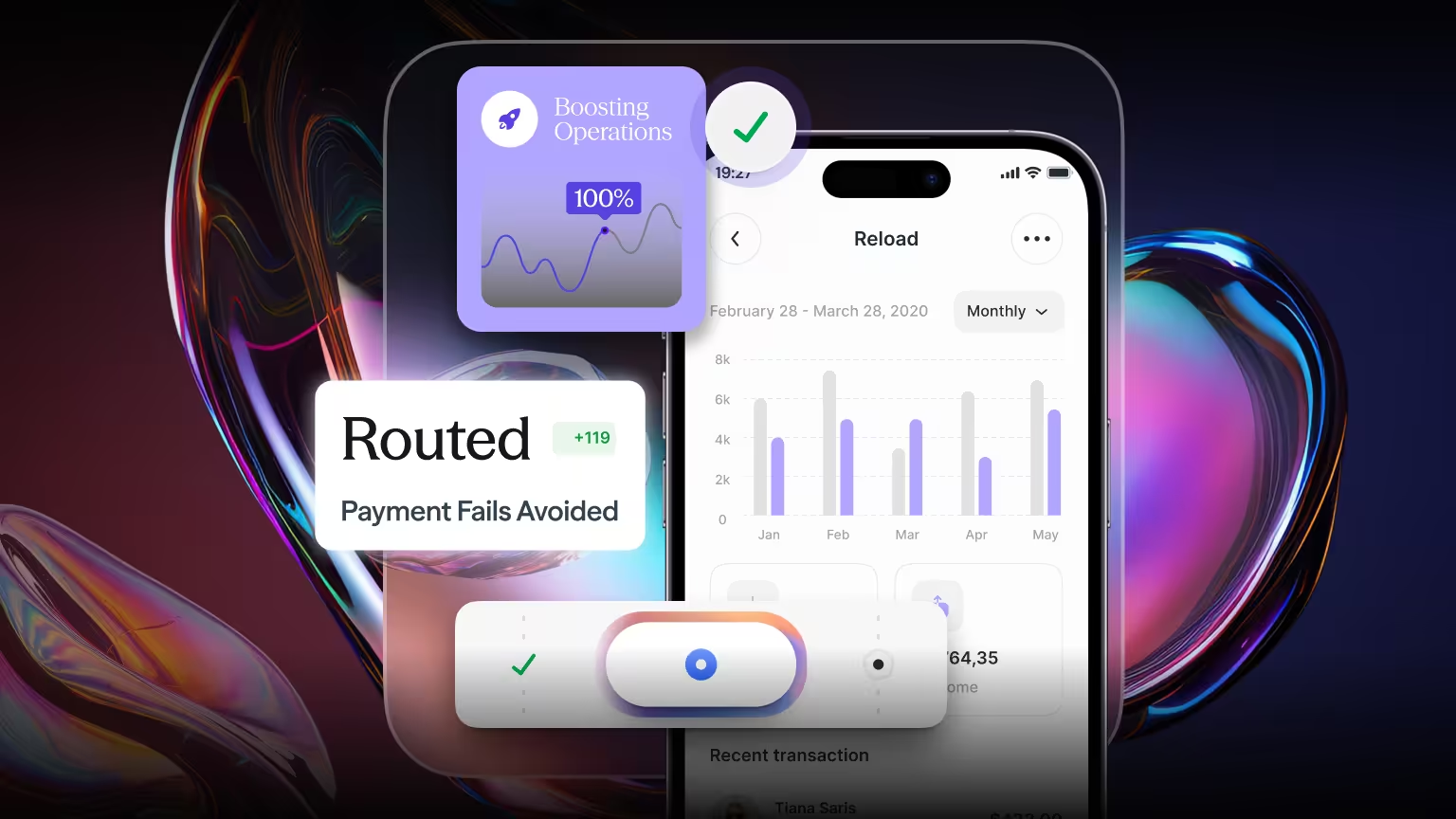What Is Payment Routing Logic and Why Is It a Game-Changer for Merchants?
Payment routing cuts declines and reduces costs. Learn how to optimise every payment, every time.

Every transaction matters, and every millisecond too. When a customer hits “Pay now,” what happens in the background could mean the difference between a completed sale and a lost opportunity. Yet, many businesses still rely on outdated, rigid payment setups that simply don’t perform in today’s global environment.
What if your payments could adapt in real time, finding the best path for each transaction, every time? That’s the promise of payment routing logic, and when done right, it becomes a serious advantage for merchants looking to increase revenue, reduce declines, and optimise cross-border payments.
Understanding Payment Routing Logic
At its core, payment routing logic is a set of rules or automated decisions that determine how a payment transaction is processed. Instead of sending every transaction through a single acquirer or processor, routing logic evaluates specific data points like the customer’s location, the card’s issuing bank, transaction value, or card scheme and routes the payment through the most optimal provider.
Think of it as the GPS of your payment stack. Rather than taking the same road every time, it finds the fastest, safest, and most cost-effective route based on real-time conditions.
This logic can be static, where rules are manually set and rarely updated, or dynamic, where routing decisions are driven by data, system performance, and historical outcomes. And the most powerful models employ smart routing, a data-driven, dynamic approach that reacts to real-time performance and intelligently chooses the best route for every transaction.
Why Static Routing Is No Longer Enough
Still relying on a single acquirer or fixed payment route? You’re not alone, but you may be losing out.
Static routing sends all transactions through the same path, regardless of the type of card, location of the customer, or how that acquirer is performing. This often leads to:
- Higher decline rates, especially for international cards
- Lack of fallback if a provider is unavailable or underperforming
- Increased processing costs, due to missed opportunities to optimise fees
Merchants operating with static routing logic can experience up to 15% more failed transactions, particularly in cross-border scenarios. That’s a significant loss in potential revenue and one that’s entirely preventable (Source: Payments Journal).
What Is Smart Routing and How Does It Work?
Smart routing is an intelligent, performance-driven approach to routing payments. Instead of using fixed rules, smart routing adapts in real time, using data points such as:
- Issuer location
- Card scheme and type
- Acquirer response history
- Transaction amount and currency
- Time of day and processing latency
With this information, the system determines the best possible route for each payment, improving success rates and lowering costs. Unlike basic payment routing, smart routing is designed to be proactive and responsive, continuously optimising transaction flows based on real-world results.
The Benefits of Smart Routing for Merchants
Improved Approval Rates
Different acquirers perform differently based on geography, card type, and issuer relationships. Smart routing detects these patterns and directs payments to the most successful route. This can significantly reduce false declines.
Payments Journal reports that implementing smart routing can result in a 10–15% increase in approval rates, especially for international and multi-currency transactions.
Lower Processing Costs
Not all routes cost the same. Some acquirers charge higher fees depending on region, card network, or transaction volume. Smart routing allows merchants to optimise cost per transaction by automatically choosing the most cost-effective provider without sacrificing approval performance.
According to Payments Cards & Mobile, merchants who implement smart routing strategies reduce their processing costs by up to 18%, particularly when working with multiple acquirers.
Real-Time Failover
If an acquirer is down or underperforming, smart routing can instantly reroute the transaction to a secondary provider. This built-in redundancy prevents service interruptions and reduces the risk of checkout failures.
Greater Transparency and Control
Smart routing gives merchants visibility into payment performance across regions, card types, and processors. This data supports ongoing optimisation, better forecasting, and more strategic acquirer management.
Payment Routing vs. Smart Routing: What’s the Difference?
While the terms are often used interchangeably, payment routing and smart routing represent very different approaches.
Payment routing is the basic process of directing a transaction to a payment processor or acquirer. This can be simple and static, with no performance insight or adaptability.
Smart routing, by contrast, is a more advanced form of payment routing logic that uses real-time data to automatically select the most effective route for each transaction. It’s dynamic, flexible, and continuously optimised based on success rates, fees, geography, and more.
In short, smart routing is payment routing, done better.
Why Smart Routing Is Business-Critical
The payments ecosystem becomes more complex, and merchants need more than just functional systems. They need intelligent infrastructure that adapts, protects revenue, and scales with their business. Smart routing plays a central role in this evolution, helping businesses ensure that each transaction is directed through the most effective route based on real-time performance. It minimises unnecessary declines and improves authorisation rates. At the same time, it offers greater control over processing costs, allowing merchants to optimise for price without sacrificing success. Just as important, it provides full transparency into how payments are performing across markets, enabling more strategic decision-making.
In a competitive environment where margins are thin and user experience is everything, smart routing isn’t a nice-to-have. It’s a foundational capability for any business that takes payments seriously.
Finera: Smart Routing Built for Scale
At Finera, we help businesses and platforms build high-performance payment infrastructure, with smart routing at its core. Our system is designed to support complex global operations by enabling smart, multi-acquirer routing, real-time failover, and seamless multi-currency flows.
Businesses can configure routing logic based on geography, card type, or customer profile, all while gaining deep visibility into performance through transparent reporting and analytics. Whether the goal is to reduce cost, improve conversion, or expand into new regions, Finera makes it easy to route payments intelligently and with confidence. And with 24/7 support, our team is always on hand to help you stay one step ahead.
Get in touch with our team today to discover how we can help you scale smarter.
Stay Connected with Us!
Follow us on social media to stay up to date with the latest news, updates, and exclusive insights!






